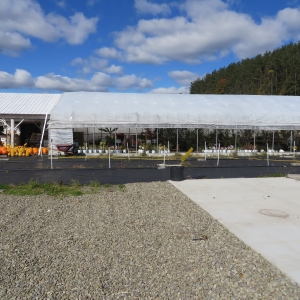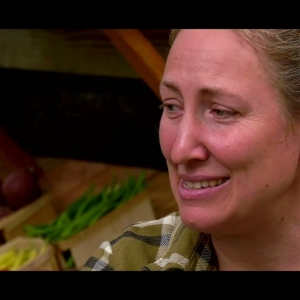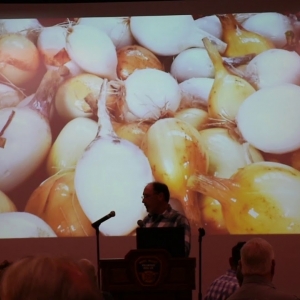Other Ag News:
(Washington, D.C., December 12, 2025) – U.S. Secretary of Agriculture Brooke L. Rollins published an opinion piece in USA TODAY highlighting this week’s actions the Trump Administration is taking to protect American farmers.
This post examines the devastating loss of experienced staff within US Department of Agriculture (USDA) Rural Development and the consequences for the agency’s ability to support farmers, rural businesses, and communities. As the National Sustainable Agriculture Coalition (NSAC) continues to track the staffing crisis across USDA, Rural Development stands out not only for the depth of its losses, but also for the ripple effects those losses create across the entire rural economy.
This post is the latest in our series documenting the widespread staffing crisis underway at USDA and the compounding impacts of the department’s proposed reorganization. Each part of this series highlights how reduced staffing and weakened capacity are undermining core USDA functions that farmers and rural communities depend on every day.
Rural Development (RD) plays a critical role in growing the vitality of rural America. Through a wide range of financial services, technical assistance, and community-focused initiatives, RD supports job creation, business investment, affordable housing, infrastructure improvements, and essential services. A number of priorities for NSAC and its members are housed within RD such as the Value Added Producer Grants, Rural Microentrepreneur Assistance Program, Rural Energy for America Program, the Meat and Poultry Processing Expansion Program, and many others. These programs drive economic opportunity for farmers and improve quality of life in rural communities—outcomes that require knowledgeable staff, consistent program delivery, and strong local partnerships. As RD loses seasoned staff at an alarming pace, farmers and rural communities are already beginning to feel the strain of slower service and reduced capacity.
Rural Community Federal Support Severely Hollowed OutThe previous twenty years have seen a steady erosion of RD staffing numbers, leaving current staffing levels at less than half of what they were in 2005. In addition to steady staff attrition, Rural Development (RD) has been hit extremely hard by recent staff cuts, losing approximately 36% of their staff since January 2025. As rural American communities and farmers endure a period of economic hardship, RD is operating with fewer staff to support them.
Figure 1: Rural Development staff
Data from OPMRD lost approximately 1,536 staff to the Deferred Resignation Program (DRP). The DRP was a program spearheaded by the Department of Government Efficiency (DOGE) to reduce the federal workforce by offering incentives to staff who voluntarily resigned in early 2025. RD had one of the largest losses of any USDA agency, behind only the Forest Service which lost more than 4,000 staff to the DRP and the Natural Resources Conservation Service which lost approximately 2,409. In addition to the losses from the DRP, an additional 188 RD staff separated from the agency between January and March 2025, according to data from OPM. Separations include retirements, early retirement, transferring to a different federal agency, quitting, or any other separation from the agency.
A Dual Loss: Experience and the Next GenerationThe staff who separated from RD had an average of 13.5 years of service to the agency; however, this average masks a striking divide: turnover was concentrated at both ends of the experience spectrum. 32% of employees who separated had less than one year on the job while 31% who separated had more than twenty years of experience and institutional knowledge. In other words, RD lost both its most seasoned experts and the next generation of employees.
The impact of losing these bookends of the workforce cannot be overstated. Long-tenured staff hold deep program knowledge, trusted relationships with rural partners, and practical understanding of how to navigate complex federal processes—knowledge that cannot simply be replaced by hiring new staff. At the same time, the departure of early-career employees eliminates the pipeline of future leaders needed to maintain continuity and innovation. These staff losses will undermine the ability of the agency to serve its mission for years to come.
No State Spared from Staff CutsRD staff, like most other USDA agencies, are predominantly located outside of the Washington, DC region, with less than 4% of RD staff located in Washington, DC. Rural Development is, by design, a field-based agency—its effectiveness depends on local staff who understand regional needs, maintain relationships with communities, and implement programs on the ground.
Staff losses have occurred nationwide, affecting every state and territory. Smaller states with already limited staff numbers were hit especially hard. Rhode Island lost 100% of their staff, essentially eliminating the agency’s presence in the state. Connecticut, Wyoming, Vermont, Alaska, and Idaho all saw losses exceeding 50 percent, leaving critical gaps in service delivery and severely constraining program access for rural communities.
These local staff losses matter because RD’s work cannot be centralized or outsourced; it depends on staff who know local lenders, understand rural economies, and collaborate with community partners. This erosion of field staff undermines the agency’s ability to connect farmers and rural community partners with essential programs that strengthen local economies and expand market opportunities.
Unfortunately, this is not the first time in recent history that RD has been undervalued by its political leadership. In the last major USDA reorganization, during President Trump’s first term, then-Secretary Sonny Perdue demoted Rural Development, eliminating it as a mission area with a designated Under Secretary to advance its mission. This move was reversed in the 2018 Farm Bill, but Rural Development continues to be plagued by a lack of support and underinvestment, in addition to these persistent and acutely felt staff shortages.
The map below shows the percentage of RD staff lost in 2025 to both the DRP and other separations. Click on a state to see details and click “get the data” to download the data directly
Figure 2: Rural Development Staff Loss By State
Rural Development Losses Will Hurt Rural CommunitiesRural Development staff administer a wide range of programs that serve not only America’s farmers, but also their communities, including loans, business development, housing support, and rural infrastructure. The loss of these staff across the country undermines the agency’s ability to promote rural prosperity and for the USDA to fulfill its mission. As the former RD director for South Dakota told Agri-Pulse: “It is really sad. USDA Rural Development is the only area of government that was really focused on economic development for small rural communities. So, it can be devastating.”
In July 2025, Secretary of Agriculture Brooke Rollins released a reorganization plan for the USDA, drafted without any input from farmers or other stakeholders. While the plan does not explicitly outline changes to RD, Secretary Rollins has publicly signaled that the agency may be a target for program or staffing consolidation while President Trump wrongly asserted the duplicative nature of RD programs, limited macro-economic impact, and the costly nature of delivery in his Presidential Budget Request this year. RD investments are, in fact, highly effective programs tailored to the unique needs of rural communities.
Research shows that counties that received RD investment in rural broadband had higher business survival rates and better employment outcomes than those that did not receive the investments. Research also consistently shows that RD supports farm viability by diversifying farm revenue with value-added products through programs such as the Value Added Producer Grants (VAPG). Analysis by the Economic Research Service finds that “VAPGs enable recipient businesses to reduce the risk of failing and to provide more jobs than the comparison group” and additional research finds that these funds help farm businesses develop their businesses more effectively than otherwise. Value added and local foods development like that supported by VAPGs are widely understood to be an economic multiplier for rural communities in which every $1 of federal investment is multiplied in its positive impact on rural economic growth.
RD program support is already stretched thin, operating with 36% less of the staff than it had at the start of 2025, including the loss of many employees with decades of institutional knowledge. Any reorganization layered on top of this crisis threatens to deepen the damage and further erode the agency’s ability to deliver critical programs that serve rural communities that depend on it.
The post USDA Staffing Crisis: Rural Development Staff Cuts Leave Rural Communities Behind appeared first on National Sustainable Agriculture Coalition.
(Washington, D.C., Dec. 12, 2025) – U.S. Deputy Secretary of Agriculture Stephen A. Vaden today announced $38.1 million in additional U.S. Department of Agriculture (USDA) assistance to help producers in Tennessee recover from Hurricane Helene. Deputy Secretary Vaden signed a block grant agreement with the Tennessee Department of Agriculture (TDA) that provides recovery assistance to eligible Tennessee farmers.
Editor’s Note: NSAC has been shaped for decades by creative, joyful, and smart leadership from hundreds of advocates and farmers. Today we mourn the recent loss of our longtime colleague Michael Sligh and are proud to celebrate his life and contributions to building a better world for farmers. This guest post was written by Kiki Hubbard, who is a researcher at the University of Wisconsin–Madison, where she studies the market dynamics shaping the seed industry. Kiki is the former Executive Director of the Organic Seed Alliance, an NSAC member. The team at RAFI-USA, another NSAC member and Michael’s longtime professional home, also published this remembrance.
The first time I met Michael Sligh, I was working as an intern for the Center for Food Safety (CFS) in Washington, DC. It was 2002, and he walked past my desk where I was organizing a mailing for a new book that my boss had edited, called Fatal Harvest. I remember his steady gait and stoic face under a Kerry cap. He wore a trench coat. I felt a jolt of recognition as I thought to myself, That’s Michael Sligh. I was a bit starry-eyed after reading his chapter in the book sitting in front of me.
My time at CFS led me down the seed policy path, and if you’re doing that work through a lens of justice, fairness, and public benefit, you inevitably find yourself in room after room with Michael Sligh. In the years that followed, Michael became a close colleague and friend – ultimately the most impactful mentor of my career. He was a treasured and deeply dedicated collaborator, and he had a way of keeping me grounded and hopeful, even when the work felt downright discouraging. As a true connector and skilled organizer, he brought people together, including many of the colleagues I now consider dear friends.
Michael came from a family of farmers and ranchers in west Texas and left home in the 1970s to farm himself in Tennessee, Florida, and other places, ultimately landing in North Carolina. During the farm crisis of the 1980s, he became acutely aware of the obstacles family farmers face and began protesting at farm foreclosures and standing up for farmers in other ways. He told me and other colleagues that he left the farm to be an organizer, thinking he’d return to farming full-time once the problems were “fixed.” His legacy shows that his work at that time had only begun. It’s no wonder he would refer to policy work as “watching a tractor rust.”
The throughline of his career was ensuring that policies related to food and farming, antitrust and competition, and intellectual property rights worked for family farmers, farm workers, and the communities they feed, not extractive firms. And that commitment to fairness, and to farmers, permeates the many groundbreaking initiatives he helped to create. He was a founder of the Southern Sustainable Agriculture Working Group, National Organic Coalition, and Domestic Fair Trade Association; a founding partner of the Agricultural Justice Project and co-creator of the Food Justice Certified label. For nearly 30 years, Michael served as a program director for the Rural Advancement Foundation International – USA. During his tenure there, he served leadership roles in various coalitions, including the National Sustainable Agriculture Coalition. He helped to establish Southern SARE, and in every Farm Bill debate he served as a voice for farmers in the South and organic farmers, specifically. Michael was active in international circles as well, regularly participating in the International Federation of Organic Movements’ Organic World Congress and serving on the International Organic and Sustainable Accreditation Board.
Michael was steady but not rigid. He was diplomatic but bold. His southern drawl, gentlemanly manners, and facilitation skills helped to put people at ease, including farmers visiting Capitol Hill for the first time and even congressional staff members themselves. He embraced a participatory approach to policy solutions, evidence that he practiced what he preached: A decentralized and diverse agricultural system required a diversity of decision-makers. Indeed, the root of just about every problem he tackled lay in concentrated power.
While Michael could push the envelope by offering big, seemingly unachievable ideas, he also took the long-view, understanding that incremental progress toward solving the biggest challenges of our time – climate change, market consolidation, biodiversity loss – was the pragmatic path. In so doing, Michael proved that incrementalism could achieve systemic change.
For example, the National Organic Program (NOP) continues to be the strongest food production standard available to consumers today, and Michael played no small part in making that so. We should all be thankful that he was the founding chair of the USDA’s National Organic Standards Board (NOSB) from 1992 to 1997, since the first order of business was creating the NOP and making significant decisions about what should and should not be allowed in certified organic production, such as whether transgenic organisms were compatible with organic farming, and who would benefit most if they were allowed.
Michael remained a consistent presence and voice at NOSB meetings long after his tenure ended. His dedication to the success of organic farmers and the integrity of the label spanned 40 years. As the organic program matured, and regulations necessarily evolved, Michael advocated for the concept of continuous improvement as a touchstone of policy decisions. He would acknowledge that the concept may be difficult for regulators to understand, but that farmers live it every day.
Michael was the vision and heart behind the National Organic Action Plan, a 10-year blueprint for organic food and farming that was derived from grassroots input spanning farmers, farm workers, regional processors and retailers, and other community members. The charge was clear: create a policy platform for ensuring that the rapidly expanding organic market supports family farmers, protects human health, and benefits the environment. Embedded in this blueprint was Michael’s uncompromising commitment to the founding principles of organic agriculture. I can still hear him asking: “Does this pass the fairness test?” He was like a moral compass for the organic movement.
Michael was vocal about the need for improving regulations on agricultural biotechnology so that farmers weren’t pitted against each other – those who used the technology versus those across the fence who didn’t. He was one of the few people who would provide testimony to the USDA’s Advisory Committee on Biotechnology and 21st Century Agriculture, which was charged with looking at coexistence challenges and policy needs between different production systems, such as biotech and organic. He also advocated regularly for more financial support of our public seed collections, be it in the Farm Bill or through the work of the USDA’s National Genetic Resources Advisory Council. And he always organized others to do the same.
As a co-founder of the Seeds & Breeds Coalition for 21st Century Agriculture, Michael was dogged in his commitment to our nation’s plant breeders. This initiative began in the early 2000s as public plant breeding programs continued to experience budget and staff cuts. Seeds & Breeds brought together – and still brings together – plant breeders, small seed companies, farmers and seed growers, and policy experts to identify ways to reinvigorate our public plant breeding infrastructure to help meet the regional seed needs of farmers. A major focus of the coalition’s work were the increasingly restrictive forms of intellectual property rights on seeds, especially utility patents, and the egregious contracts that accompany them, which strip a farmer’s right to save seed and a breeder’s right to innovate. This ultimately led to a 2016 summit on Intellectual Property Rights and Public Plant Breeding. This important event resulted in a set of best practices that universities still rely on to ensure new varieties remain publicly accessible while also generating revenue to sustain breeding programs.
Michael was a broken record in congressional and USDA offices: the department’s competitive grant programs should prioritize breeders developing “farmer-ready” varieties, as he called them. Michael would explain the urgency by underscoring three things: First, public breeding programs were increasingly important in the face of market consolidation, where a handful of firms control much of the commercial seed supply, narrowing seed options and increasing prices for farmers. Second, changing climates required access to more regionally adapted and resilient varieties tailored to specific environmental conditions, production practices (e.g., organic), and pest and disease pressures. And third, data showed that most plant breeding grants were favoring molecular biology and genomics projects as opposed to field-based, conventional plant breeding. We can learn a lot from lab-based techniques, Michael would say, but we can’t adapt the crops that feed us in a lab. We need to breed them in the open environments of their intended use.
It took a decade of advocacy, but in 2014, the USDA’s Agriculture and Food Research Initiative created a separate program for Conventional Plant Breeding and Public Cultivar Development. In 2024, more than $2.7 million was put toward proposals in this program area, and thanks to Michael, Seeds & Breeds policy work remains a priority for influential coalitions, like the National Organic Coalition and National Sustainable Agriculture Coalition.
In the current political climate, it’s easy to forget how much progress the organic and sustainable agriculture movement has made toward embedding fairness, health, ecology, and stewardship into our food and farming policies and practices. And while, as Michael said, “A good organizer doesn’t look for credit,” boundless credit is now due. We applaud you, Michael, for helping us inch that much closer to a more livable and just planet. And we thank you.
In addition to this legacy, Michael will live on in the form of his favorite refrains, which I find myself repeating on the regular. As an organizer, he’d ask: “Are they on our side of the river?” As a meeting facilitator closing out a meeting: “Shall we declare victory?” And as a friend: “We must find rest in our work.”
On November 7, 2025, Michael left this world peacefully after a short battle with cancer. I trust he can now rest, knowing that he helped to seed movements that are alive and growing – movements that remind us that concentrating our own power as advocates is our greatest strength. Because when we’re on the same side of the river, we have the ability to make waves.
The post Guest Post: Remembering Michael Sligh, a champion for farmers and food justice appeared first on National Sustainable Agriculture Coalition.
(Washington, D.C., December 11, 2025) — Today, Secretary of Agriculture Brooke Rollins sent a letter to Governor Gavin Newsom (PDF, 1.4 MB) demanding California abandon a proposal that would redistribute agricultural land based on race, ethnicity, and national origin. This letter comes as the California Land Equity Task Force considers a draft proposal that would encourage and facilitate land transfers and financial assistance exclusively to certain minorities.
(Washington, D.C., December 10, 2025) – U.S. Secretary of Agriculture Brooke L. Rollins today highlighted the outpouring of support from governors, commodity groups, farm bureaus, and agriculture industry leaders across the country following President Trump’s announcement of $12 billion in Farmer Bridge Assistance Program payments.
While the longest federal government shutdown in US history has finally ended, its impacts on farmers, families, and communities nationwide are complex and ongoing. No two government shutdowns are identical since each Administration makes their own determination about what essential services and staff will continue to operate during the shutdown. Some federal services remain in operation, while many others go dark, though there is a consistent throughline – the longer a shutdown lasts, the more severe the disruptions become.
In a previous post, published near the start of the shutdown, the National Sustainable Agriculture Coalition (NSAC) outlined how the pause in government operations and furlough of employees at the US Department of Agriculture (USDA) would impact agricultural programming and many important functions of the government, such as farm loan application approvals, conservation program reimbursement processing, appeals of terminated grant funding, and ensuring that vulnerable families receive nutrition benefits.
In this post, we highlight specific examples of how farmers and other food and agriculture stakeholders across the nation were impacted by the 43 day lapse in government services. The post concludes by examining how other changes at USDA – from staffing cuts to a proposed reorganization – can interrupt services in much the same way as a government shutdown, underscoring the need to center farmers, their families, and the most vulnerable in our communities in all of the Department’s decisions.
Conservation AssistanceA core part of USDA’s mission is to preserve natural resources through conservation. The Natural Resources Conservation Service (NRCS) works with farmers across the nation to implement conservation practices that make farms more self-sufficient and resilient. During the shutdown roughly 95% of NRCS staff – which had already been drastically reduced – were furloughed, resulting in significant disruptions. Most conservation programs involve financial incentives, but are typically structured to require the farmer to pay out-of-pocket and receive reimbursement later. This, combined with razor thin production margins, means any delays in payment processing not only add to the stress farmers are already experiencing, but threaten farm viability. For example:
- Molly, a rancher at MoSo Farms in Ohio, shared that they were owed $4,000 for a conservation contract with NRCS. During the shutdown, USDA personnel could not come to her farm to confirm that the work was carried out as agreed upon in the contract. “We could really use this cash right now during our most lean time of the year when we’re paying for over $30,000 in processing fees to have our more than 50 hogs and 10 cattle butchered,” she explained.
- Lindsay, who farms at Trouvaille Farm in Ohio, was unable to communicate and coordinate with NRCS during the shutdown. They were expecting another $5,000 from NRCS for a Conservation Stewardship Program (CSP) contract but could not get any information from their NRCS officer, who was presumably furloughed. To make ends meet, she found herself having to put expenses on a personal credit card.
Another vital function USDA provides is resources to support farmers as they navigate external factors like droughts, natural disasters, and market volatility. Most of these services are administered by the Farm Service Agency (FSA), which furloughed 67% of its staff during the shutdown. Farmers reported being unable to access payments allocated for disaster assistance and being unable to complete loan applications, leaving them in the dark about the status of their application and adding to their financial stress and uncertainty. For example:
- Antonio submitted an FSA loan application before the shutdown, and then received a response asking him to address a few things on his application with a new deadline of October 15th. After resubmitting the revised application, he received no response from FSA staff. At the time of this writing, he has not heard back and presumes the application is still in queue as incomplete.
- Jane, of Wheelers Orchard, a fruit farm in Tennessee, reported having been awarded an Environmental Quality Incentives Program (EQIP) contract in addition to the Noninsured Crop Disaster Assistance Program (NAP), which provides financial assistance to farmers growing crops that are ineligible for traditional crop insurance. “We had crop failure in our orchard and are waiting for our NAP insurance payment, which is now in hold.”
- Celeste, of Free Range Flowers in Washington shared that they rely on an annual $50,000 FSA operating loan to get them through the slow, cold season. She pointed to what this means not just for their operations, but their workforce as well. “We are not able to predict how we will staff in 2026, which leaves our coworkers adrift.” Her story highlights the thin margins on which small and mid sized farms operate and how critical it is to have a responsive and well-staffed USDA to timely process loan applications. Her story also illustrates how connected USDA services are to a strong and robust agricultural workforce, which is essential for farm viability and longevity.
The shutdown delivered significant impacts that delayed and reduced Supplemental Nutrition Assistance Program (SNAP) benefits for children, the elderly, and our most vulnerable community members. A lesser known result of a SNAP benefits lapse is the impact to farmers and small food retailers. There are several USDA programs that are designed to leverage nutrition benefits to increase both access to healthy, high quality local food and improve local farmers’ bottom line. When nutrition benefits are cut, farmers experience that impact. For example:
- Caroline, of Chez Nous Farm, a fruit and flower farm in Ohio, said the government shutdown was impacting her on a more personal level. She is a SNAP benefit recipient while those funds were also suspended. Her farm demonstrates how to produce the best food while also caring for the entire ecosystem and all its components. As a responsible and ethical land steward she has an active CSP contract, but the NRCS conservationist she works with had been furloughed. Her annual payment was suspended until federal employees return to work. It’s not uncommon that farmers and farm owners, with thin profit margins and revenue varying significantly month to month, also rely on federal benefits like SNAP.
- Bradley runs a small certified organic vegetable farm called Full Hollow Farm in Michigan. They proudly use earth-friendly, sustainable growing practices to encourage biodiversity and soil health. They typically see about $500-$800 worth of produce purchased with SNAP at farmers markets each month, and anticipate taking a serious financial hit in November due to the government shutdown and SNAP benefits being delayed.
- Carine, of Sun Tracker Farm, a diversified vegetable and egg farm in California, was concerned about the impact the lapse in nutrition benefits would have on both her and the community at large. As she wrote in the Napa Valley Register, it “will mean a hit in our sales, and for many of our fellow farmers,” and that “people will go hungry without programs such as CalFresh,” California’s state SNAP program.
- The lack of reliable access to USDA services does not only impact farmers. The Broad Street Food Pantry’ in Ohio anticipates increased demand from folks in need of food, but few opportunities for them to increase the amount of food available. Food banks are intended to be short term support for families who need assistance to get back on their feet. As community needs grow in size and urgency, food banks may not be able to meet the demand, which we could prevent through intentional investments in USDA resources and capacity.
Now that the federal government and USDA have reopened and resumed normal activity, essential services for farmers and food and agriculture stakeholders are once again widely available. However, other ongoing changes at USDA still threaten to impact services for farmers.
USDA will continue to carry out the massive reorganization plan proposed this summer, which they claim will, “consolidate, unify, and optimize functions within [the Department].” As NSAC has noted, the reorganization proposal was developed without input from farmers and other stakeholders, raising significant and legitimate concerns about how it will impact USDA program and service delivery. Without meaningful stakeholder input and significant revision, we are deeply concerned that the damage done during the shutdown will be compounded if the reorganization moves forward as proposed. USDA must take the time to ensure that programs and service delivery for farmers and stakeholders will not be further disrupted by gathering public input through a fully transparent process and fully assessing potential impacts before moving forward with any proposal. We can and must do better by our farmers.
Unfortunately, the proposed reorganization isn’t the only ongoing threat to essential services for farmers – since January 2025, USDA has significantly reduced its staff across the Department – roughly 20,000 employees have left USDA. Every agency at USDA has experienced staff resignations and separations. Some have been hit particularly hard, like the Rural Development mission area losing 36% of its staff, and the Natural Resources Conservation Service (NRCS) losing at least 22% of its staff.
The funding bill that was enacted in November to reopen the government provided USDA with funding to last through the end of the fiscal year 2026 on (September 30, 2026), but did not take action to mitigate or rectify the problems farmers faced during the shutdown or as the result of ongoing changes at USDA. These effects will continue to ripple throughout the agricultural sector and in communities across the US, and could continue to worsen without intervention. The stories highlighted here offer a glimpse into the acute impacts farmers, families, and communities experience when government programs and services are disrupted – impacts that stand to be exacerbated if USDA’s staff loss and reorganization plan proceeds unchecked.
The post Voices from the Field: The Real Costs of the Government Shutdown appeared first on National Sustainable Agriculture Coalition.
(Washington, D.C., December 10, 2025) – Today, U.S. Secretary of Agriculture Brooke L. Rollins, alongside U.S. Health and Human Services Secretary Robert F. Kennedy, Jr., and Centers for Medicare & Medicaid Services Administrator Dr. Mehmet Oz announced a $700 million Regenerative Pilot Program to help American farmers adopt practices that improve soil health, enhance water quality, and boost long-term productivity, all while strengthening America’s food and fiber supply.
(Washington, D.C., December 10, 2025) – U.S. Secretary of Agriculture Brooke L. Rollins, joined by U.S. Secretary of Health and Human Services Robert F. Kennedy Jr., today announced the approval of six new state SNAP food-choice waivers under the Make America Healthy Again (MAHA) initiative. The waivers, submitted by Hawai‘i, Missouri, North Dakota, South Carolina, Virginia, and Tennessee, will amend the statutory definition of “food for purchase” under the Supplemental Nutrition Assistance Program (SNAP) beginning in 2026.
FOR IMMEDIATE RELEASE
Contact: Laura Zaks
Associate Director of Communications and Development
National Sustainable Agriculture Coalition
press@sustainableagriculture.net, 347.563.6408
—
Contact: Jessica Manly
Communications and Digital Advocacy Director
National Young Farmers Coalition
press@youngfarmers.org, 518-643-3564 x 722
Joint Release: Fleeting Relief for Some Farmers, But ‘Bridge’ Payments Lack Long-Term SolutionsWashington, DC, December 9, 2025 – Yesterday, the US Department of Agriculture (USDA) announced limited details of the Farmer Bridge Assistance (FBA) Program, which will make $12 billion available in one-time payments predominantly for row crop farmers. The announcement comes at the conclusion of a tumultuous 2025, during which rising production costs, low crop prices, diminished market access, and unprecedented instability in federal partnership converged to push many farmers to the brink.
“By nearly any measure, 2025 has presented American farmers with a set of unprecedented challenges. The Farmer Bridge Assistance Program provides some initial relief, but is insufficient on its own. It effectively excludes most specialty crop growers and does little to prevent the loss of farms or farmland due to acute financial hardship. Congress must act quickly to keep farmers on the land – offering loan support and cash-flow assistance, increasing market access, and investing in input-reducing conservation practices – coupled with a commitment to overhauling the safety net and building out financial resilience,” said Mike Lavender, NSAC Policy Director.
The Farmer Bridge Assistance Program will direct over 92% of payments to a handful of commodities, including corn, cotton, peanuts, rice, wheat, and soybeans. Roughly $1 billion will be reserved for other crops, including specialty crops, though a timeline for those payments is not yet available. USDA reportedly confirmed that FBA eligibility will be limited to those individuals or legal entities with an adjusted gross income below $900,000, and payments will be capped at $155,000 per recipient.
“Farmers know how to roll with the punches and navigate the unexpected, from weather impacts to pest and disease pressures and shifts in market access, whether local or international. At the same time, farmers expect a certain level of confidence in how our public agriculture systems are governed and maintained. The layered and persistent uncertainty of 2025 is pushing many farmers to the limits of what their operations can withstand. The collective government response to these conditions needs to be robust, multi-faceted, and appropriately targeted. This means that the payments announced this week must be followed by additional and expedient efforts to keep farmers on the land and to improve the farm safety net, leaving annual bailouts as cautionary historical context rather than ongoing policy,” said David Howard, Young Farmers Policy Development Director
Producers will not be required to enroll in crop insurance to be eligible for FBA payments. While income limits and payment caps have been clarified in press reports, it is unclear whether ‘actively engaged farming’ requirements will be applied to eligible recipients. USDA will use a national loss average to calculate payments, which is unlikely to adequately account for geographic differences in the market conditions that producers face.
The program will be rolled out on an incredibly tight timeframe – USDA has set a deadline of December 19 for farmers to ensure their 2025 acreage reporting numbers are accurate. Commodity specific payment calculations are to be completed and announced by the end of December, with checks flowing to producers by February 28, 2026. This short timeline is warranted, but may prove difficult amidst USDA staff shortages – the Farm Service Agency has lost 1,200 staff since January 2025. Under these circumstances, it is critical for USDA to ensure accurate and equitable program delivery – and to avoid the “significant improper payments” that have plagued previous assistance programs.
Looking beyond this current effort, the National Sustainable Agriculture Coalition and the National Young Farmers Coalition strongly urge USDA and Congress to come together and work on additional solutions to repair and expand the farm safety net to all farmers. As Secretary of Agriculture Brooke Rollins stated in yesterday’s announcement, “It is imperative we do what it takes to help our farmers, because if we cannot feed ourselves, we will no longer have a country”. We must ensure that across the country, people producing the food we eat have adequate certainty to plan the future of their agricultural operations and provide a reasonable quality of life for their families.
###
About the National Sustainable Agriculture Coalition (NSAC):
The National Sustainable Agriculture Coalition is a grassroots alliance that advocates for federal policy reform supporting the long-term social, economic, and environmental sustainability of agriculture, natural resources, and rural communities. Learn more: https://sustainableagriculture.net/
—
The National Young Farmers Coalition (Young Farmers) is a national grassroots network of young farmers changing policy and shifting power to equitably resource the new generation of working farmers. Visit Young Farmers on the web at youngfarmers.org.
The post Joint Release: Fleeting Relief for Some Farmers, But ‘Bridge’ Payments Lack Long-Term Solutions appeared first on National Sustainable Agriculture Coalition.
Pages
Signup for the Ag Newsletter
Get the freshest farm news, events and updates from in and around Cattaraugus County, NY at least once a month! Go signup!
Other ways to stay connected:
Get Involved in Farming
Resources for Starting a Farm in Cattaraugus County
Profile of Cattaraugus County soils
Agriculture Career Exploration
Questions about farming? Find out Who to Call










